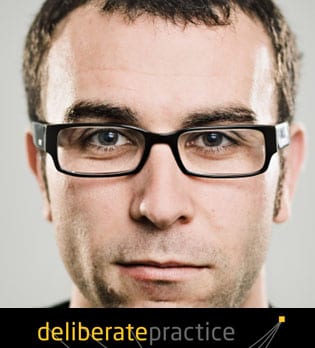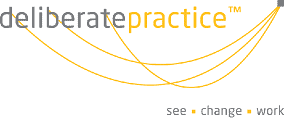M&A Cycle
The experts advise me that in a typical M&A cycle, deal volumes and values initially decline in line with an economic downturn, often prompted by an exogenous event. Company management and Boards of Directors often hesitate on big investments, wary of extending their organisation in a weaker economy.
In the 20th edition of BCG’s Global M&A Report, Jens Kengelach, Co-author of the report, highlighted M&A dealmakers had been feeling the pinch of sustained downturn in deal activity, and prolonged challenges with rising interest rates, geopolitical tensions, and recession fears. Deal activity seemed to bottom out in the first quarter of 2023 and more deal makers have returned to the negotiation table, optimistic about the outlook for 2024.
There are many reasons fueling this. Efforts to bolster supply chain resilience have led to regionalisation strategies; companies continuing to use M&A to pursue their ESG and digitisation agendas; higher cost of capital will push companies to consider large or transformational deals, and pursue acquisitions, divestitures, or a combination of the two to bolster growth and reshape businesses. Conditions making this possible include an abundance of available capital held by wealth funds, private equity, and venture capital investors, and in some regions, inflation levels, financing costs and uncertainty are beginning to stabilize, narrowing the gap between sellers’ and buyers’ price expectations. But this is not my specialty! My specialty is the employee experience through, and post change.
The Employee Effect
Typically, M&A’s affect all aspects of an organisation, most importantly, its employees. An M&A can cause fear, uncertainty, and anxiety for many employees, who may wonder if they will be a part of the new organisation, and if so, in what capacity. When two organisation’s merge, staff members from the original companies are typically left wondering who will stay, who will go, and what the structure of the new organisation will be. Very often, some of the talent and resources are often deemed redundant in the new structure.
Just as an M&A can represent a huge shift for organisation’s, other activities like organisational restructures, new service models, loss of a contracts and digitalization do the same. In the 21st Century, change is nothing new, but it is important not to lose sight of the fact that not everyone is a winner with organisational change, particularly when this is not the first time. Change fatigue can feel like lingering mental and physical tiredness. The sufferer feels neither excitement nor optimism about the change, and at an individual level people may experience apathy, disengagement, fatigue, and frustration.
In further context, employees seem to have less capacity to cope with change in the post-pandemic era. We prefer what is familiar and when confronted with something new or unfamiliar, we prefer to rely on what we already know. This is quite common and important in organisational change. To quote Mehmet Murat ildan, (contemporary Turkish playwright, novelist, and thinker), “When everything looks unusual around you, your eyes and your mind mostly need anything usual! The unfamiliar disturbs us; familiar comforts us! But for the wise man, unusual is more precious than the usual because it offers us a new way, a new vision, a new idea, a new world!”
Founder of Change Designers, Belgium, Sarah Coene says that we must also pay attention to familiar. ‘If you hear a song several times, you often start to like it more. But if you hear it too many times, you get tired of it and start avoiding it. So, avoid overkill and try to subtly incorporate repetition.’ Research shows that the mere exposure effect reaches its maximum strength between 10 -20 exposures. After that, the effect diminishes again. Interestingly, this effect is less effective with kids who prefer to discover new things. We can aim to keep the child in us alive and be curious about new ideas and experiences (again)? Stimulating the curiosity quotient of employees could well be the key to change readiness, even if you become a ‘casualty’ or a ‘loser’ in the new model.
High-performing HR (Human Resources) functions drive positive employee experiences and business outcomes
High-performing HR organisations are associated with positive business outcomes, including hitting or exceeding financial targets and a valuable resource who consider the significance of people issues and the human side, during the due-diligence stage, strategic planning stages and disseminating critical information. Their expertise can play a significant role in helping ‘deal makers’ develop a clear understanding of the organisation’s culture, employees’ roles, and capabilities, and how the transaction will affect employees. Fortunately, people data and soft due diligence activity is more frequently being undertaken, to facilitate successful M&A’s. But just because the deal gets done, this does not mean the work is done.
Coene references that at the root of any successful change is a thorough understanding of the employee’s needs in combination with more co-creative working methods. Irrespective of the change driver or cycle of change an organisation may be facing, attention must be paid to the employee’s experience. Instead of taking our HR processes as a starting point, start from the perspective of the employee and focus on moments and human needs. Perhaps use design thinking techniques to redesign every aspect of work, from the first touch point between an employee and organisation to the last one when they exit an organisation. Attention that should be given to a human centric change effort is:
- Integrating corporate cultures – Even though cultural similarities may exist, there will also be misalignment in beliefs that guide and influence actions in an organisation. It is imperative to attend to facilitating processes to merge while honoring fundamental goals of the merger or acquisition identify and preserve the most essential elements of each company’s culture.
- Building internal change capabilities that equip employees to be more resilient and agile when impacted by change. Our career transition service helps with this.
- Developing meaningful employee experiences around moments that matter most to the employee including their adjustment to new roles, reporting relationships, new ways of working, and importantly loss of their job to voluntary or involuntary redundancy.
- Managing redundancies with formal processes and objective factors for decision making when determining who will be reassigned or laid off, that helps people make better choices.
- Providing outplacement or career transition services based on a strong partnership with the outplacement provider to co-create an optimal experience that is people centric.
- Not generalising all employees into one bucket and stepping into the shoes of a persona, so that your attention is drawn to what really matters to them and better understand the underlying needs of different users or stakeholders.
- Giving a small push in the right direction to help people make better choices, creating conditions that encourage that choice. The nudges should focus on the wellbeing of an individual but also use for the wellbeing of the organisation. These nudges can also come in the form of knowledge sharing and transfer of knowledge.
I have welcomed opportunities to partner with a great many organisations who invest in creating a situation that brings out the best in people, irrespective of what side of the change they may end up on. People are the key players in the success of change, so finding out what motivates them to embrace organisational changes is crucial. When things are working, people are well informed and guided, feel understood, and people are willing to change, it is easier to guide people in the right direction. It also becomes easier to help those who lose their roles to the M&A or another change, to embrace their situation as a springboard to something new and exciting and embrace career coaching and outplacement. This fast tracks their transition and wellbeing, and therefore serves to feed into the wellbeing of the organisation.
If you would like to discuss any pending changes, outplacement, coaching, change support or creating employee experiences that support change, please call deliberatepractice and speak with our Careers Team on:
t: 1300335423



